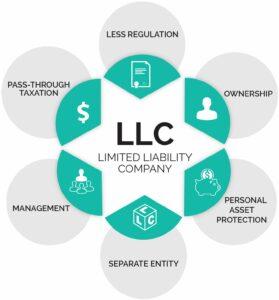 President Trump’s inimitable personal attorney, Michael Cohen, was reported by the Wall Street Journal to have used a Delaware LLC as a vehicle for payment to a porn actress of $130,000 for her silence about an alleged consensual affair with Trump. The purpose of this arrangement, apparently, was to keep Trump’s involvement quiet by using an LLC with a generic name, Essential Consultants LLC, though this goal was undermined by the fact that the publicly-filed Certificate of Formation of that entity was signed by “Michael Cohen, authorized person.” This sort of filing does not need to list any owners, and in practice is usually signed by the person with the law or accounting firm, often a paralegal, that actually prepares the filing at the client’s direction. (It’s amusing that the operation that has the financial wherewithal to pay six figures in hush money is too cheap to pay a law firm three figures to maintain the confidentiality of the principal’s involvement.)
President Trump’s inimitable personal attorney, Michael Cohen, was reported by the Wall Street Journal to have used a Delaware LLC as a vehicle for payment to a porn actress of $130,000 for her silence about an alleged consensual affair with Trump. The purpose of this arrangement, apparently, was to keep Trump’s involvement quiet by using an LLC with a generic name, Essential Consultants LLC, though this goal was undermined by the fact that the publicly-filed Certificate of Formation of that entity was signed by “Michael Cohen, authorized person.” This sort of filing does not need to list any owners, and in practice is usually signed by the person with the law or accounting firm, often a paralegal, that actually prepares the filing at the client’s direction. (It’s amusing that the operation that has the financial wherewithal to pay six figures in hush money is too cheap to pay a law firm three figures to maintain the confidentiality of the principal’s involvement.)
In recent years, Delaware in particular has been portrayed publicly (e.g., this post by the Sunlight Foundation) as a hotbed of mysterious shell companies, not that different from offshore tax havens. Delaware, however, is not unique among U.S. states in its procedures and disclosure requirements for LLCs. The New York filing for a new LLC has a different name from Delaware’s (Articles of Organization), but it’s similar in that it doesn’t require the members or managers to be listed and can be signed by an authorized person with no ownership or management involvement. Ownership is established via the Operating Agreement, a private contract not typically filed publicly. Anonymity is not iron-clad, however; ownership of these entities can be determined in the context of legal processes, such as governmental investigations and litigation. However, it is otherwise difficult for the public to ascertain ownership of private companies, assuming there is not a Michael Cohen involved to provide helpful clues.
Popular perception notwithstanding, the formation of LLCs is usually not driven primarily by preserving anonymity, though even where that is the main goal, it’s not necessarily for a seedy, porn-based reason. For examples, celebrities use LLCs to purchase real estate to avoid having their names appear in public property records along with their personal address and purchase price paid. Most of the time, however, people form LLCs for the long-standing reasons that business entities are formed: to preserve limited liability for the owners, to provide a structure for the management and division of profits of a business enterprise, etc. While organizations like the Sunlight Foundation and media organizations might seek greater transparency requirements applicable to all LLCs, it seems reasonable for people who own stakes in non-public business entities to expect privacy on the same basis that applies to their ownership of other assets, like bank and brokerage accounts.